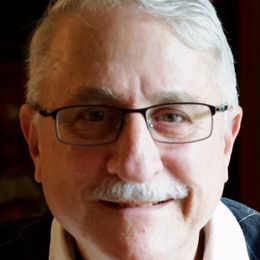For This Physician, Retirement Is an Opportunity
A retired gastroenterologist tells of being a mentor to pre-med students, and what he and the students have gained from their discussions about the profession
By the time they retire, many physicians often have not led a balanced life. They have lost, or never had, any meaningful hobbies. They don't know what to do with themselves.

When I closed my practice in 2003, I became full-time faculty in the Gastroenterology Division at a large county hospital associated with Stanford University. Again, I saw patients, did procedures, and found my passion: teaching.
By the time they retire, many physicians often have not led a balanced life.
Fast forward, I retired from the full-time position in 2015, and worked part-time to help the division. Then COVID hit. That was it; I stopped working entirely at the age of 73. Suddenly, and fortuitously, my wife Leslie and I were introduced to Mirabella on the campus of Arizona State University (ASU).
After a thorough evaluation on the web and a virtual tour, we decided we needed to visit the real thing for ourselves; we chose to go in August to see if we could survive the heat.
Mentoring Makes Me Happy
So we did and fell in love with the opportunity, the people, the staff, the building, the amenities, and the chance to audit any class on the ASU campus (where the Mirabella community resides) and have free rein of all facilities like any student.
Retirement can be a chance to give back in a meaningful way.
This was when we met Lindsey and Sigourney, both of whom Leslie calls our "Camp Counselors," who are coordinators of our activities on the ASU campus. After an hour meeting, Lindsey, listening to my interests and passions, opened me up to an opportunity that filled my requirement for something I could do passionately: mentor pre-med students.
Imagine having the opportunity to do the job that makes you happy even though you are not getting paid for it — retirement can be a chance to give back in a meaningful way.
Mentoring pre-med students did not exist on the ASU campus, so I could give the students a look at what actual daily medical practice and research life were like. They were already learning subjects in class or medical school, but we could provide meaningful, real-life experiences. (For instance, the doctor's life is not like Marcus Welby or Dr. Kildare.)
The mentoring process began with a meeting of two students, Carina and Jake, and their professor and advisor, Janice Connell, MS RDN. Then, around the table with Lindsey, we discussed for a couple of hours what the process would be.
Finally, we decided on round table discussions rather than lectures, social events with mentoring in some fashion, and one-on-one mentoring as needed; from those initial ideas, I developed something I am so proud of and love dearly.
Candid Talk About Burnout
We began by Zooming with an expert friend from the San Francisco Bay Area to help facilitate the discussion on the most requested topic out of the fifteen topics I suggested: Student and Physician Burnout. This session was so well received and enjoyed that the following month brought even more students to join us. The video from that session is being used in the classroom for education at the Health College at ASU.
The following month we discussed the Development of the Health Care System from its inception in the U.S. to the current fractured one which exists today. This allowed me to bring in another friend, Dr. Vern Smith: my daughter-in-law's father, an expert in health care delivery and the former Medicaid Director of Michigan. Over the summer, we met socially at a local pub and had excellent informal discussions.
We also discovered something we all knew: doctors are ill-prepared for business. We realized that the University needs to provide some business education for the pre-med students.
Along the way, we were joined by three more retired doctors residing at Mirabella, Dr. Arnold Victor (retired pediatrician), Dr. Kelly O'Keefe (retired pathologist), and Dr. Stan Wolfe (retired cardiologist). These three physicians greatly add to the ideas and discussions and enhance student interactions.
Meanwhile, I met individually with students concerned and anxious about taking the MCATs (Medical College Admission Tests), their concerns about financing their medical education, and their worries about whether they should go into medicine. It was wonderful to be able to talk about and help with these worries.
The Program is Growing
As the new year begins, we will be addressing such topics as Medical Ethics, Presenting Yourself in Two Minutes, How to Interview for Medical School, How to Give a Perfect PowerPoint Presentation, How to Finance a Medical Education, as well as how to decide which path they might want to pursue, among others.
We also discovered something we all knew: doctors are ill-prepared for business. And from this, we realized that ASU needs to provide some business education for the pre-med students. This is now a potential focus of attention.
As an added benefit, Dr. O'Keefe and Janice Cornell came up with the idea that students could receive extra credit (from any professor willing to allow it) for attending our sessions, and even next year, our meetings could possibly become a one-credit class on "Special Topics."
The future of this program is now showing tremendous growth. We were recently contacted by the director of the master's program in Health Administration and Delivery; those students will now have access to our sessions.
From that early conversation with Lindsey in August 2021, we developed this fantastic mentoring program that has blossomed in less than six months. Out of this came the ability to do that about which I am so passionate — share my wisdom with students. This is the perfect idea of retirement for me.
Let this be a lesson learned: Don't just curl up in front of the TV when you retire — spend your time wisely and engage with new endeavors. The later years of life can be a time for mentorship, exploration, and innovation. It's a chance to explore new opportunities that provide an exciting way to retire with meaning, and the ability to provide all that wisdom, experience, and passion we retirees can contribute.


